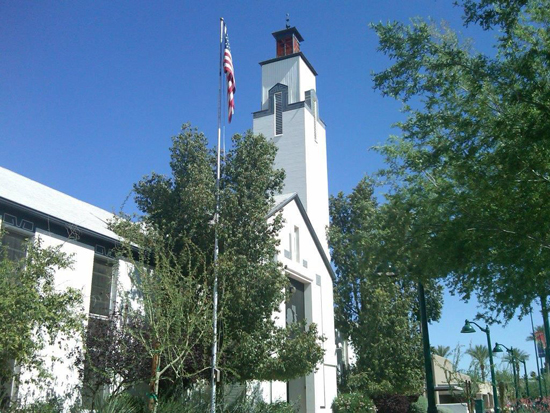
By Griselda Nevarez and Evan Wyloge | Arizona Center for Investigative Reporting
 national Phi Delta Kappa/Gallup poll found that most parents don’t have a clear understanding of what charter schools are or how they operate.Half of the poll respondents said they thought charters were not public schools. Forty-eight percent thought they can teach religion. The majority polled in 2014 believed charter schools can charge tuition and admit students based on academic ability.Chicanos por la Causa (CPLC), a nonprofit that provides social services primarily to Arizona’s Hispanic community and runs two charter schools, conducted a small focus group with 22 Hispanic parents in Phoenix that produced similar results.
national Phi Delta Kappa/Gallup poll found that most parents don’t have a clear understanding of what charter schools are or how they operate.Half of the poll respondents said they thought charters were not public schools. Forty-eight percent thought they can teach religion. The majority polled in 2014 believed charter schools can charge tuition and admit students based on academic ability.Chicanos por la Causa (CPLC), a nonprofit that provides social services primarily to Arizona’s Hispanic community and runs two charter schools, conducted a small focus group with 22 Hispanic parents in Phoenix that produced similar results.
Magdalena Verdugo, CPLC vice president of education, said most parents didn’t know they could send their children to charter schools, saying “the perception was that charter schools were private.”
Charter schools are funded by the state and free to all Arizona students. They vary in mission and model, serving a wide range of students.
According to azcharters.org, 180,000 students attended 547 Arizona charter schools in the 2016-17 school year, an increase of nearly 10,000 students – or 5.8 percent – over 2015-16.
Today, roughly 17 percent of all students in Arizona’s public schools attend a charter – about triple the national average of 5 percent.
The East Valley is home to some acclaimed charter schools, including New School for the Arts and Academics in Tempe and the BASIS charter schools.
Hispanic parents whose children are enrolled in charter schools believe charter schools are better than district schools because of their small and organized classrooms, disciplined students, secure environment and challenging academic curriculum.
For the most part, Hispanic parents who don’t have children enrolled in charter schools had a positive view of charters. Spanish-speaking Hispanic parents, however, perceived charters as the last resort for students who were expelled from other schools. Some also thought charters are religious schools.
Spanish-speaking parents were also unaware of school choice and thought low-income students don’t have the right or ability to attend a high-quality school, regardless of whether the school is a district or charter.
The lack of transportation presents the biggest barrier for Hispanic parents who want to enroll their children in charter schools, Verdugo said. For Spanish-speaking parents, it’s the inability to communicate with charter school staff in their native language.
CPLC plans to create a program to raise awareness of charter schools and school choice options among primarily low-income Hispanic families in Phoenix. The grant-funded program will include attending community events and meeting with parents to educate them about school choices.
“If I can teach one parent about what a charter school is, their options and how they can navigate the education system, my hope is that that parent is going to go to their neighbor and spread that information,” CPLC’s Verdugo said. “Word of mouth is huge in our community.”











